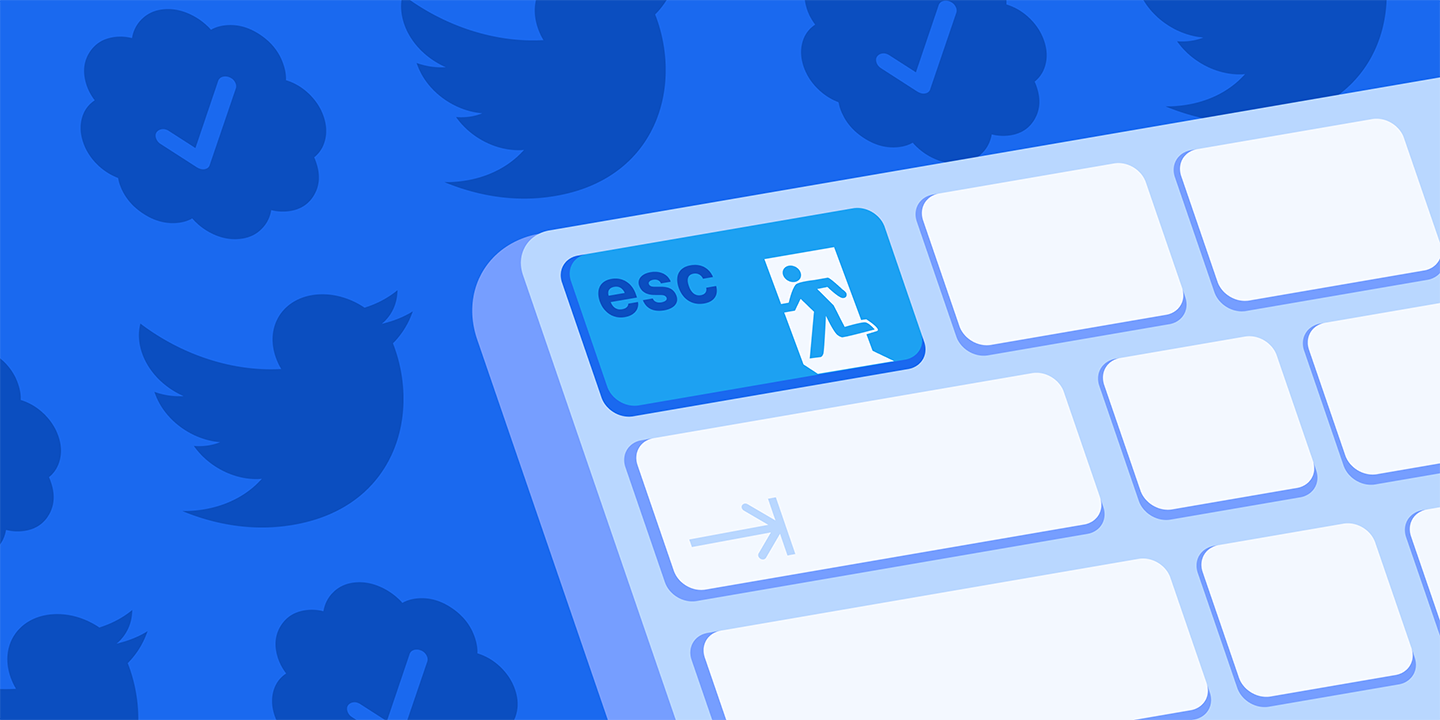You thought you’d be talking to your PR clients more about holiday guides than Twitter accounts this month, didn’t you?
The current Twitter controversies have many PR professionals debating whether their clients’ best interests lie with staying on the platform or moving along to greener social media pastures.
In this article, we consider the current Twitter environment and turn to our trusty network of PR pros to get their latest takes on this big question. Read on to learn whether or not they think this is a turning point for Twitter in PR.
PR and Twitter: How Did We Get Here?
The Twitter drama seemed to approach us slowly before hitting us all at once. For months, Elon Musk’s purchase of the platform was a game of “will he or won’t he?” as we all sat on the sidelines.
When the takeover was finalized, things moved quickly, mostly due to the sheer number of major changes Musk made for the business. After taking the reins, Musk took no time to fire the CEO, lay off half of Twitter’s staff, and convert the blue check process from one of verification to an $8 account upgrade (See one PR pro’s 58-second take on this particular change below).
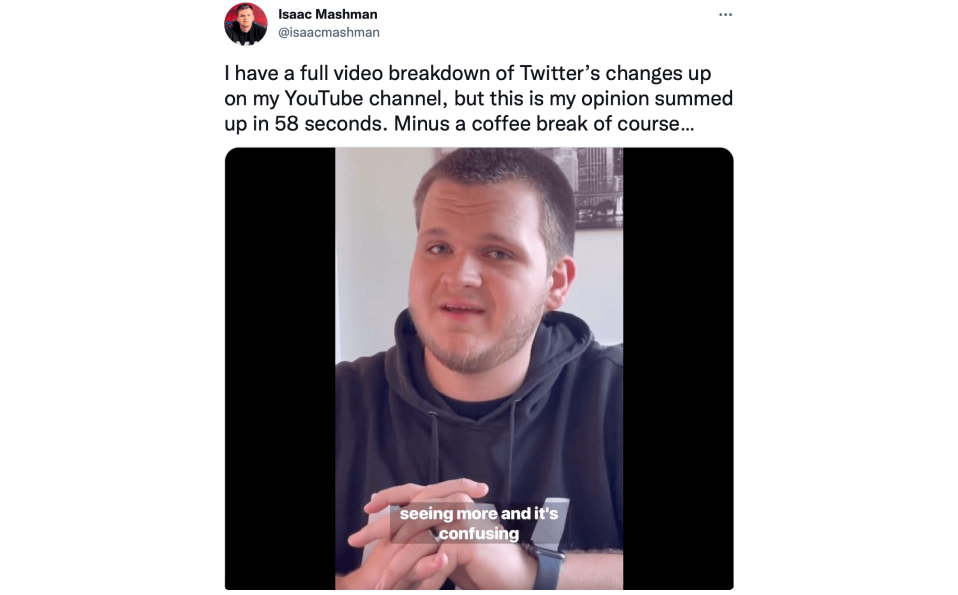
The remaining staff were then presented with an ultimatum from Musk: commit fully to long working hours or take severance and leave. This treatment of employees alone led to its own string of professional commentary.
On top of all this, Musk’s promise of less content moderation on the platform immediately led to a rise in both misinformation and abusive content.
While Twitter hasn’t collapsed as of this writing, the PR Twitter debate is not going away. The question for PR professionals remains: is the platform a sinking ship that you should get your clients off of? Or is this all just a blip in Twitter’s history, with smooth sailing up ahead?

If you're considering quitting X, check out the best Twitter alternatives available on the market. We have listed them all in this article.
We turned to some PR pros to ask a few questions about their thoughts and plans for Twitter in the coming months.
Our Panel of PR Experts
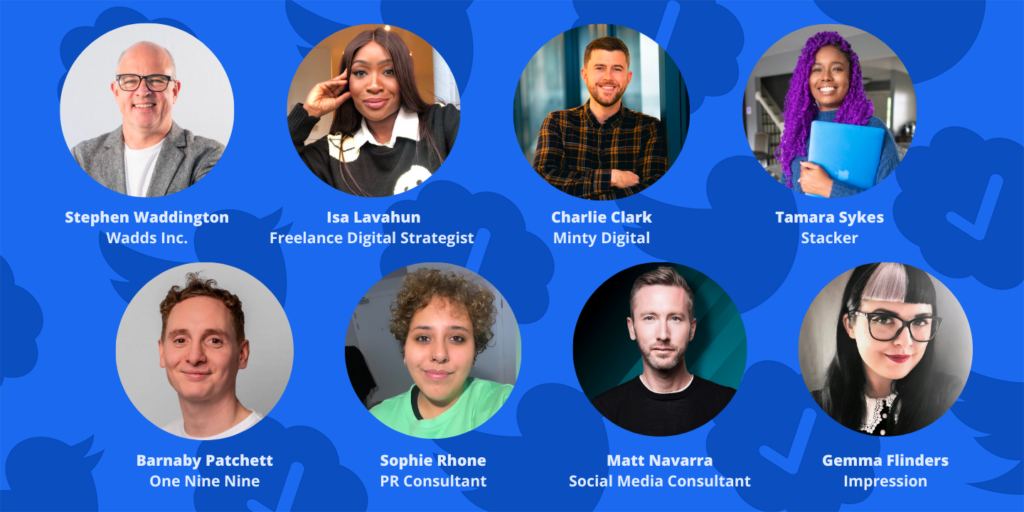
What’s your attitude toward the buzz around Twitter nowadays?
🗯 Stephen Waddington, Wadds Inc.
"It’s chaotic, but Twitter hasn’t been run properly as a business for several years. Jack Dorsey split the role of CEO with Block until November 2022. It’s 16 years old and doesn’t have a viable business model.
Elon Musk has set about transforming the business at an incredible pace. It is almost inevitable that something will break. He hasn’t acquired a car or a rocket but a network of millions of human relations."
🗯 Barnaby Patchett, One Nine Nine
"Elon’s stated vision of a more open, town square platform is something I’m broadly for. Having said that, the early implementation could definitely have been handled much better! It’s done more damage to Elon’s personal brand than anything else – people seem to be growing tired of his antics.
The pearl-clutching and doomsday claims that Twitter will die feel overblown at this stage — and looking at the raw numbers, the platform is busier than ever. The threat of people leaving the platform in droves hasn’t materialized yet.
It will be interesting to see how the platform develops under the new leadership. So far there’s been a lot of noise about exciting new features — but not a huge amount of real action."
🗯 Isa Lavahun, Freelance Digital Strategist
"Honestly, I think all the Twitter buzz is turning into a bit of a PR stunt. Mr. Musk is probably basking in all the publicity he’s getting (even bad), as it’s driving engagement. The “should we reinstate Trump’s Twitter account” poll is the proof in the pudding, with a 134 million reach and 15 million engagements. Twitter is the platform people use to complain… even if it’s about Twitter!"
"My attitude around the buzz of Twitter will never change — it'll be super hard to create a platform like Twitter where brands can speak directly to consumers."
🗯 Charlie Clark, Minty Digital
"Personally, I think people should continue to invest in Twitter. I think it’s going to grow and become even bigger as a resource. Naturally, when anything like this happens, there’s gonna be a period of unrest and a period when a lot of things change, but I think overall that for the platform it’s going to be for the better.
I think they’re going to be able to make it a much more efficient platform. They’re gonna grow it over the following years and probably make it a much more engaging platform. Also, I know they’re going to be including a lot of ways that people can monetize their content more as well."
"Whew! Twitter, one of my favorite social media platforms, has felt more chaotic than usual since the Musk takeover. I have some concerns about the future of Twitter, like the functionality of features like verification and Twitter spaces, plus the potential increase of attacks on people who are a part of marginalized communities.
However, I still have hope, mainly because media companies and journalists haven't completely abandoned the platform.
I'd be personally concerned if they and other industry colleagues started to leave.
Overall, this is another reminder to diversify your shared content platforms and continually invest in owned platforms, such as a website and email newsletter."
🗯 Matt Navarra, Freelance Social Media Consultant
"I think it is exactly as many people describe it — a lot of noise, and a lot of focus on one man, who is Elon Musk.
It’s the Elon Musk show, he is the main character of Twitter and everything that he says, everything that he tweets, the world’s media and big users of Twitter hang on to it, because he knows how to play the "Twitter Game" very well.
And much like Trump, he tweets out polarizing, contentious content to spark engagement, to drive a reaction and create a sense of chaos and confusion, so he is chaotic and confusing, and I don’t think that’s going to change anytime in the short term whilst Elon Musk is in the mode that he is in.
At the moment, Twitter is still my favorite platform. I still enjoy using it the most and I have quite a large audience on it, but it’s in a very volatile and dangerous position due to Elon Musk’s control and the decisions that he’s making. It’s a precarious place to be for brands and creators, influencers and anyone else who uses the platform for work."
"Some people like change, some people fear it. This is all it is. Elon has come in and wants to make his mark on his $44 billion purchase. Would there be as much buzz if the original owners were making these changes? Probably not, but Elon comes with pseudo celebrity status and therefore his actions will be subject to more scrutiny.
The buzz is probably just a marketing tactic to try and get more people to return to Twitter and eventually it will die down and people will be using the platform again as normal. All social media tries different updates to see what works and what doesn’t, and this is just the same. It is just a case of riding it out and hoping he at least gives everyone a bloody long overdue edit button!
As far as the treatment of the Twitter workers, that is something which deserves the buzz. Companies are called out for how they treat employees and should be held accountable and Elon should be the same."
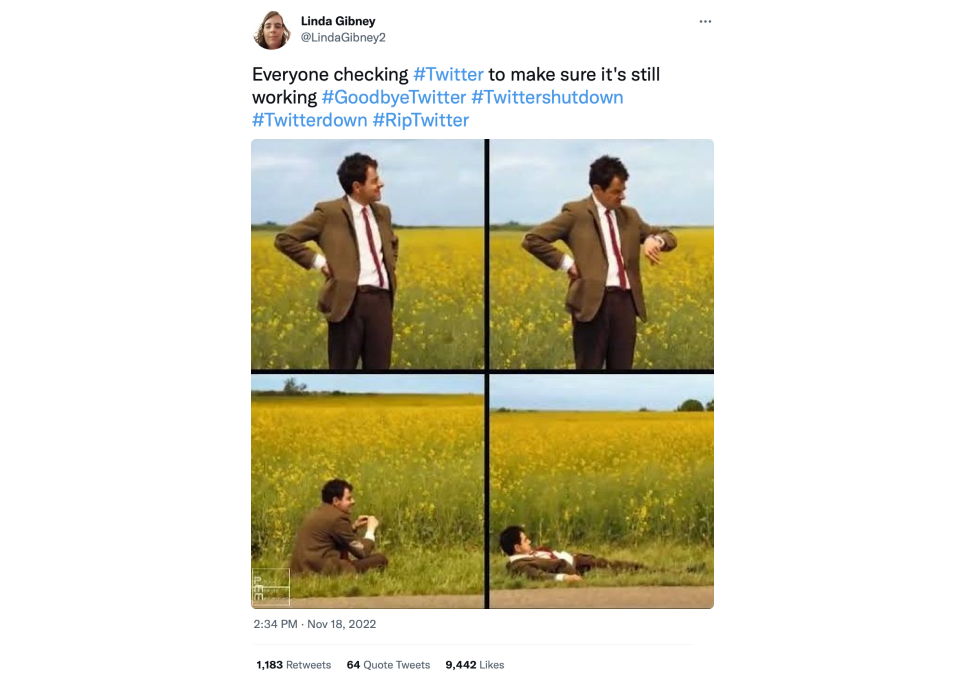
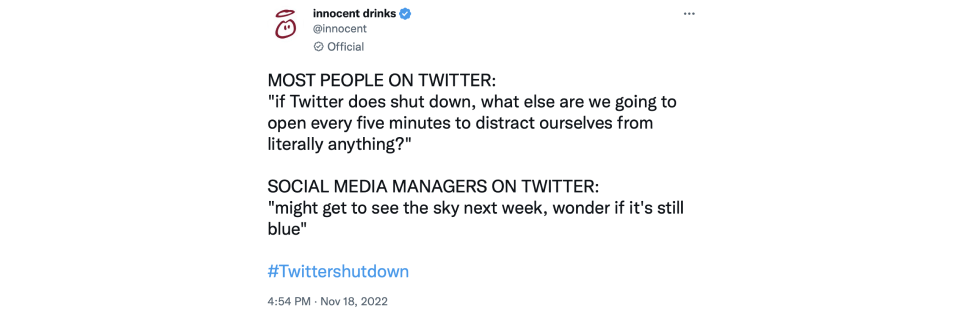
And if you're planning a business acquisition or merger yourself, here's a guide that will show you step-by-step how to write a proper press release.
Are you still going to use Twitter and keep your profile and clients’ profiles there?
🗯 Stephen Waddington
"Yes, I’m still using it. I’d urge clients to pause all paid and promotional activity but continue to actively manage it as a channel for listening and customer service."
🗯 Barnaby Patchett
"Yes — for now! We’ve had concerns about the platform from clients who disagree with the new direction on ideological grounds, or who worry about its long-term viability.
For these clients, we’re already exploring the benefits and potential downsides of migration to competing platforms.
If another platform takes a significant market share and is right for our clients — we’ll be there.
🗯 Isa Lavahun
"I’ve deleted my main personal account but kept my professional one. I still need Twitter for work (shout out to the #journorequest hashtag). My main worry is what Twitter will do with the data if the ship does go down. I don’t use it as much as I use other platforms, so it’s not a huge change for me.
For clients, I’d say keep profiles for now, but pause or reduce advertisement spending till the dust settles."
🗯 Sophie Rhone
"Absolutely still going to use it. I think as humans we never like change — and Elon Musk becoming the new CEO is a big change — but brands are still tweeting, and so are consumers."
🗯 Charlie Clark
"I’d say 100% stay on Twitter — I think it’s a temporary thing at the moment where they’re just trying to see what works and what doesn’t and where improvements need to be made, and eventually, they will be made.
I saw a lot of people arguing with Elon Musk on Twitter, and some of them, well, they’re coming around now. So eventually, it will be a good thing, but people just don’t like change sometimes."
🗯 Tamara Sykes
"Absolutely! Twitter is still the best copy-based social media platform to share content, discover news, and connect with others."
🗯 Matt Navarra
"I don’t manage individual client’s Twitter accounts, that’s just not what I do, but speaking for myself I will be there till its death, or until Elon Musk throws me off the platform. Unless something so dramatic happens that I just can’t support the platform anymore due to the decisions that Elon Musk makes and I think it would have to be pretty severe for me to make this decision. So I have no plans to abandon Twitter, I still have plans to use it and I still get quite a lot of value out of it, so no plans to quit Twitter anytime in the short term."
🗯 Gemma Flinders
"I personally don’t manage any client social accounts, being in PR, but from my perspective, if a brand leaves Twitter but the competitors remain they are just freeing up space for them to target and steal their loyal consumers or “fans.”
But I will still be using Twitter until the industry leaves it or it gets shut down. It is a fantastic space for PR inspiration, tips, community and, of course, building relationships with journalists through engagement or helping out with journo requests."
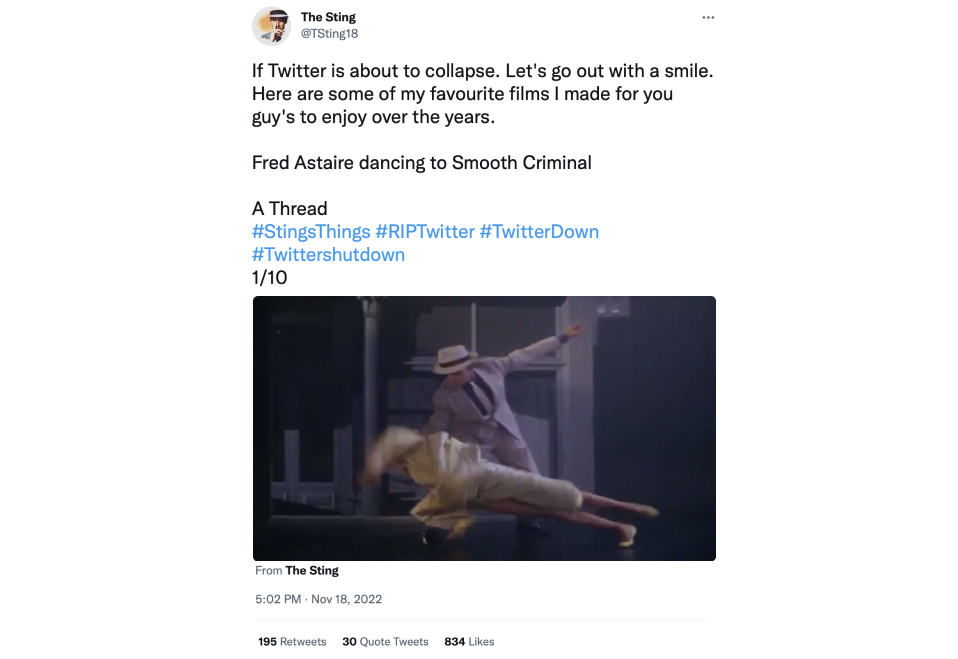
Do you think this Twitter crisis will change your and your clients’ PR workflow?
🗯 Stephen Waddington
"As long as Twitter continues to be sustainable, it will be an important part of the public relations workflow. It’s a source of real-time news and information, and a platform for relationships with journalists and other stakeholders."
🗯 Barnaby Patchett
"Not massively at the moment — we’ll still produce content for the platform where appropriate, and look to take advantage of any of the new features if they align with our client’s goals."
🗯 Isa Lavahun
"I’m actually 50/50 on this. On one hand, the crisis could continue until Musk steps down as CEO and lets someone else take charge, or he sells it. On the other hand, as disruptive as he is, Musk could be the thing Twitter needs to shake things up and accelerate the business.
As popular as Twitter is, it’s yet to be profitable, so something significant needs to change. If anything, he’s getting eyeballs on the platform as people want to see what his next move is (good or bad). I would definitely advise clients to invest in building audiences elsewhere."
🗯 Sophie Rhone
"I would always look at TikTok as another platform; it's changing the way we consume brand information, and I think there is a lot of exciting stuff to come in 2023 within the PR industry."
🗯 Tamara Sykes
"Again, it depends on the client. For clients who are accustomed to sharing the news they've created and connecting to journalists via Twitter, this is a push to figure out different ways to do those things. But I'll most likely advise others who never invested in Twitter to wait until the platform's future is clearer unless there's a compelling use case to jump in the fray.
E.g., TikTok and IG tend to be better sharing platforms for e-commerce brands."
🗯 Matt Navarra
"I don’t think it makes a difference to me, because my daily tasks vary from regular PR work. I write a weekly newsletter, I do a lot of tv and media work (I often appear on TV to talk to the media as a guest expert), and I do some consultancy.
But certainly for advertisers on the platform, it is going to have a huge impact. There are already people and brands who have abandoned Twitter or cut their spending as advertisers on the platform and I think that it will continue and even increase in the short term.
Again, I see where the platform is headed and in terms of PR I think that brands will be more cautious with the way they use it, because the risks are increasing with the changes being made and their brand safety is being jeopardized. I think that from the PR point of view, companies are very cautious and very concerned and therefore they are nervous about using Twitter."
🗯 Gemma Flinders
"There hasn’t been a noticeable change in the PR industry on Twitter as of yet that I have noticed, there are some mumblings from some influential people in SEO discussing leaving the platform but with sadness.
The blue tick subscription was, in my opinion, a terrible addition to the platform, not only does it open the door to fake accounts and misinformation, but it also means that those who have built a genuine following and are deemed as influential will now have to fight through the noise of those paying for the privilege.
It could go two ways for clients, they could become noisier on the platform to prove they are the original and legitimate account — which could put people off the brand as the balance of brands on social media needs to be carefully monitored in order to avoid turning it into a purely advertorial platform — or they could pull themselves off of it, but the latter is only likely to happen if competitors do the same.
I genuinely believe once the dust settles things will go back to how they were, but with Elon trialing random updates and additions to ensure he has put his stamp on the platform in some way — which just what this Trump situation is all about."

The Twitter Alternatives
Similar to what Waddington said, some PR and ad agencies are keeping their clients’ Twitter feeds active, but pausing on advertisement spending. The Verge reports that the Omnicom Media Group, the ad agency behind major brands like McDonald’s, Apple, and PepsiCo, is recommending their clients pause spending on Twitter due to the new slew of “verified” impersonation accounts. According to an internal memo, “The risk to our clients’ brand safety has risen sharply to a level most would find unacceptable.”
Social media newsletter, Future Social, seems to reach a similar conclusion (at least for smaller advertisers) in their recent piece.
All of this leads to PR pros searching for Twitter alternatives. We asked our panel about what they’re currently considering.
Do you have some other tools in mind that could replace Twitter?
🗯 Stephen Waddington
"We’re using Twitter alongside private networks on platforms such as Guild and WhatsApp. I have large communities on Facebook and LinkedIn. Mastodon has enjoyed a resurgence, but there’s too much friction for most people to make the switch from Twitter."
🗯 Barnaby Patchett
"We’ve been pragmatic and looked to establish foundation profiles on Twitter alternatives such as Mastodon."
🗯 Isa Lavahun
"TikTok and LinkedIn would be top of the list. In terms of a Twitter replacement, there are platforms like Counter Social and Mastodon, but I would hold off on going full steam on the ‘alternative platforms’ until we all know where the Twitter followers will go."
🗯 Sophie Rhone
"TikTok, if anything, is one to watch out for."
🗯 Tamara Sykes
"Twitter is challenging to replace. However, alternatives I recommend for fellow PR professionals include LinkedIn, Journalists' Substack newsletters, and PR-friendly Facebook groups. These online spaces will give you insight into what stories journalists are discussing and what type of experts they are looking for."
🗯 Matt Navarra
"Well that’s part of the problem. Twitter is quite unique and there aren’t any platforms that are similar or very similar in any way. They share some aspects in the way Twitter works and what Twitter provides, and these are quite a good fit.
Mastodon, Hive, even Post which is the newest one — they all share some small similarities with Twitter, but none of them has the same scale or number of users. They all have their individual problems, they’re not perfect or ideal for people who already use Twitter.
At the moment, there isn’t a direct platform to switch to that is as powerful, that has the same or even similar reach, that operates in a similar fashion. That’s where the problem lies for many Twitter users right now."
🗯 Gemma Flinders
"The great thing about Twitter is that, unlike other channels such as TikTok and Instagram, there is no pressure for images to be included. Instagram and other visually led social media can feel a bit like a chore to post on when needing to ensure the set up, lighting and pose is just right for the images. Plus it all feels a lot more personal when an actual image of yourself gets ignored, whereas with a Tweet it is expected that you win some and you lose some.
With there being less emphasis on images and videos it also brings better engagement, people react and respond to what is being said, rather than simply commenting on the appearance of something, which is why it is such a great platform for tips and knowledge sharing. It is also the best platform for link sharing, the UX allows users to click on links shared in Tweets rather than having to return to the “bio” and Facebook just feels too personal to use for anything other than family related matters.
I don’t know of any other tools which would work as well in this industry — LinkedIn may have potential but posts are too long and there are too many “storytelling” individuals to make it a platform which is as quick and easily digestible as Twitter."

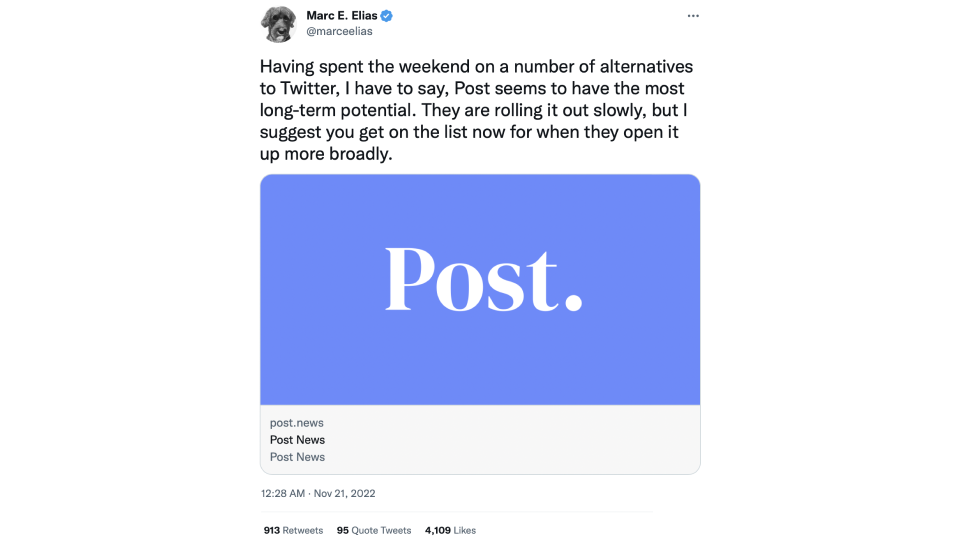
Conclusion
We surely can’t say that Twitter isn’t interesting these days. We’re following the news of the company closely, as we’re sure many of you are.
If you ultimately decide to leave Twitter, either for your client or your own brand, the LA Times provides a great list of steps you should take to wipe your Twitter slate clean.
And we’re deeply grateful to our community of PR professionals for sharing their current thoughts about Twitter and PR, both present and future. We’ll be watching their next moves too.
